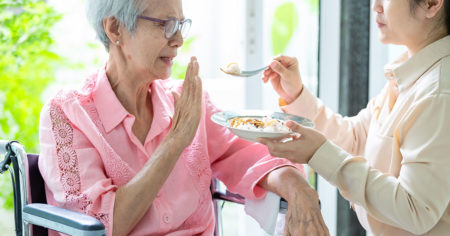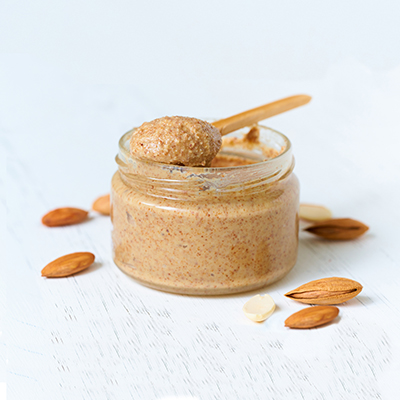January 11th, 2022
How to Boost Nutrition When Appetite is Poor

Some older adults or otherwise frail individuals struggle with mealtimes due to a lack of appetite. How do you boost nutrition when appetite is poor? Not eating can contribute to unsafe weight loss, malnutrition, and other health problems. Disinterest in food could be caused my something minor, like a side effect of medication. Or, it could be a symptom of something more serious that needs medical attention. After a doctor has ruled out causes for concern, the caregiver can use some simple tactics to boost calorie intake in a healthy way. (Note that for a hospice patient, food and drink should never be forced. The person is not dying because he is not eating; he is not eating because he is dying.)
- Offer more food at the time of day when the person is most hungry or less tired. This varies from person to person, so be flexible. Individuals who are living with advanced dementia may be more irritable in the late afternoon or early evening, a situation called sundowning. In this case, breakfast and a lunch are the best times to attempt the larger meal(s).
- If the person won’t tolerate a large meal, offer smaller snacks throughout the day instead.
- Some elderly experience a reduction of taste and smell senses. Foods with strong aroma and extra seasoning can be helpful in these cases. However, be aware that some people are extra sensitive to strong odors and may become nauseated if smells are too intense. If you are serving meals in a mixed setting, like an assisted living facility, keep this in mind.
- Increase calorie intake by using milk or cream instead of water in soups and cooked cereal.
- Add saturated fat by using butter, margarines without trans-fats, or olive oil on foods.
 Nut butters are an easy way to add healthy fats and calories, and they’re easier to digest than whole nuts. Serve on toast or mix into hot cereal.
Nut butters are an easy way to add healthy fats and calories, and they’re easier to digest than whole nuts. Serve on toast or mix into hot cereal.- Add nonfat powdered milk, sour cream, or whipped cream to semisoft foods like yogurt, mashed potatoes, soups, and pudding.
- Adding grated cheese accounts for a couple hundred calories per serving.
- Some patients may do better using their fingers instead of utensils.
- Meal-replacement/supplement drinks may have high sugar content and artificial ingredients. Consult with a doctor.
- Rule out dysphagia, a term that means difficulty swallowing. It typically results from the weakening of mouth and throat muscles, and it can present worse in people who have certain diseases, including Alzheimer’s and cancer. For people with severe dysphagia, getting proper nutrition and/or enough calories is a challenge. It’s important to work with a nutritionist to ensure dietary needs will be met. With a specialist’s help, you can learn how to make nutrient-rich purées and thickened soups that will have quality ingredients and be of an appropriate thickness for an individual with dysphasia.

 Nut butters are an easy way to add healthy fats and calories, and they’re easier to digest than whole nuts. Serve on toast or mix into hot cereal.
Nut butters are an easy way to add healthy fats and calories, and they’re easier to digest than whole nuts. Serve on toast or mix into hot cereal.